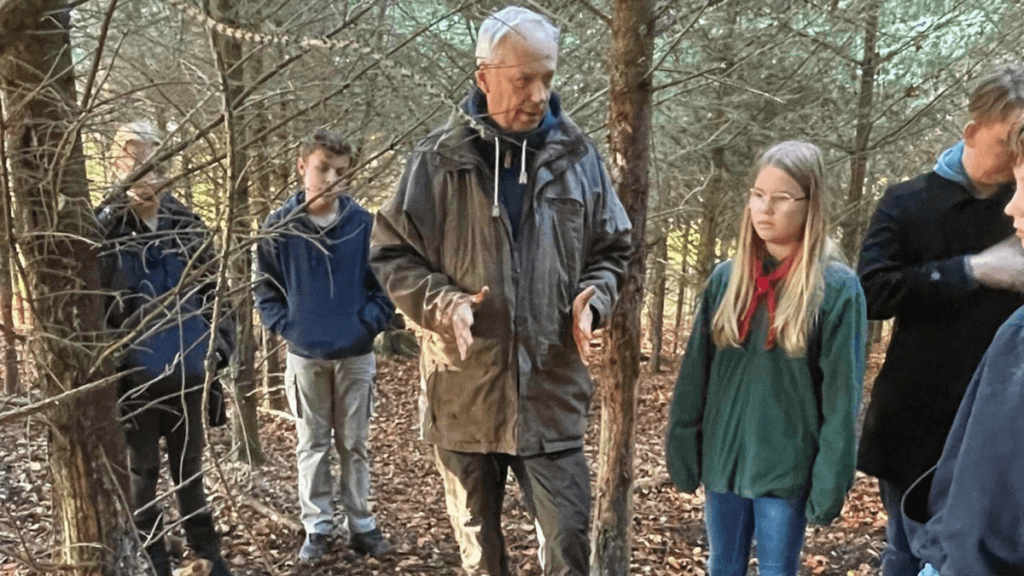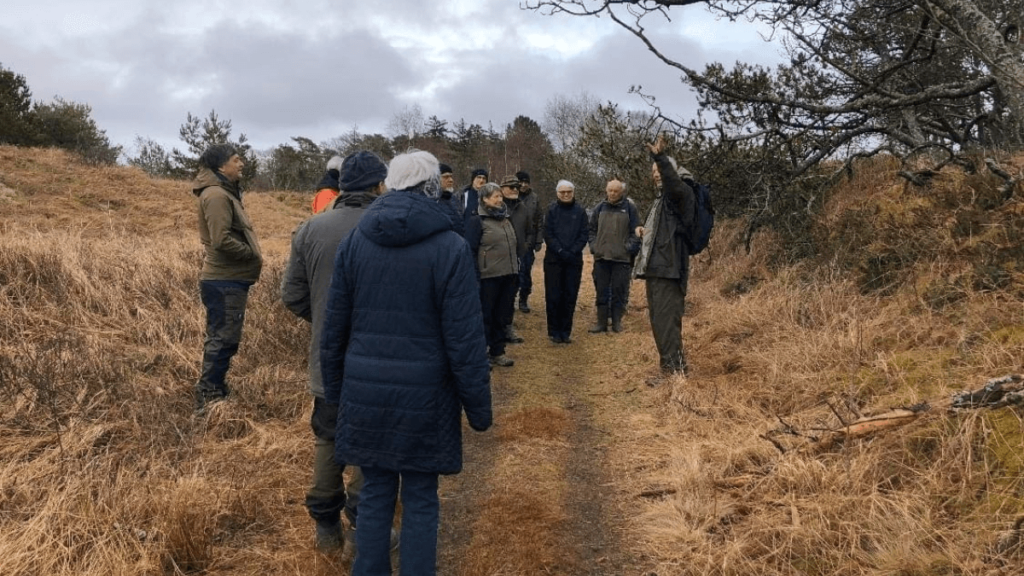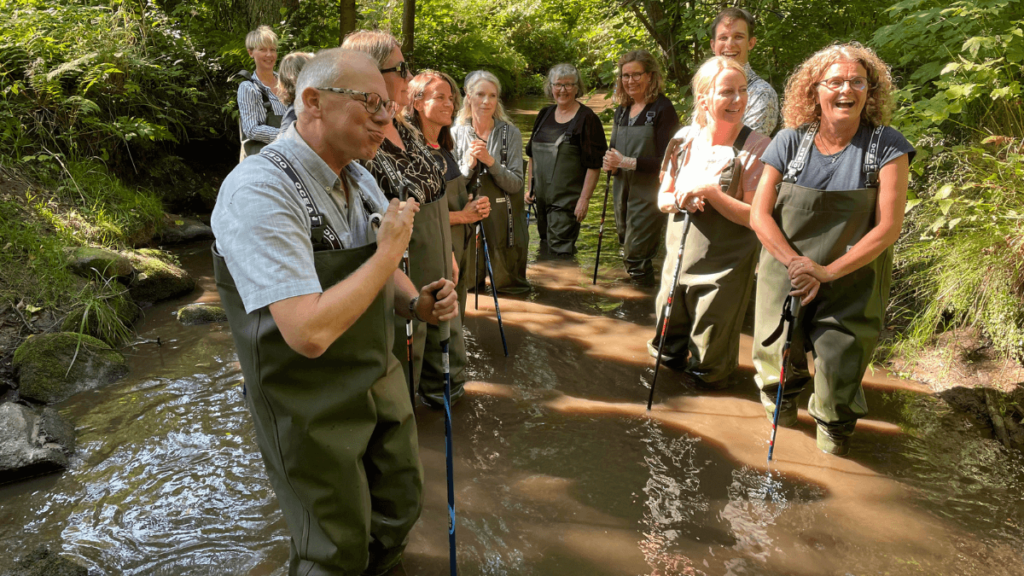Our ranger training on environmental education is all about storytelling: Denmark’s rangers will show and let participants try out for themselves around Frederikshavn from 27 to 31 March 2023 how storytelling can improve rangers’ skills in interpreting nature for environmental education. We asked our host for the course, ranger Bo Storm from naturvejleder.dk, what participants can expect.
Bo, can you give an overview of what the course will be about?
We will see how we interpret nature in Denmark, above all by telling stories. We are going to meet colleagues working with children in a nature school where they are doing a month of nature interpretation for a nature reserve. It’s called Lille Vildmose, 20 km south from Aalborg. As well I am going to explain how rangers can do storytelling by using different tools, as environmental education and ranger skills for nature interpretation are much about telling stories.

Bo Storm and his colleagues introduce children to natural contexts through engaging stories. Photo: Storm
We are going to visit a museum with a lot of pictures of nature areas, trees and persons, so participants could tell a good story. We will also see examples of digital interpretation and a colleague will do exercises with the participants. We will even be joined by a colleague from Mallorca, where she has her own company to do nature interpretation, as a teacher.
How will participants learn to use tools for good storytelling?
We will be out in nature and show you several methods about nature interpretation live. For example, what can you tell about a tree with its several performances. The participants will show each other how they are doing nature interpretation. I might record a video of these parts, so everyone can have feedback from an external view. The course will be much about doing exercises, according to the theme “Don’t tell, show it”. Participants will have the chance to think about the methods shown, discuss and evaluate them, showing how they do it. We will compare and give our thoughts, so everyone could take insights for the special needs of her or his region and nature’s visitors back home. Anyway, you will probably learn to communicate in another way. It is much about how you are meeting people – adults, but also children.
Rangers can also tell stories about landscapes for a better understanding of nature by adult park visitors. Photo: Storm

What nature topics are covered and for whom is the course suitable?
The topics will be around many things. Just to name a few: forests, birds, the sea and the protected area of Lille Vildmose as one of the biggest moorlands in Denmark, which is fenced for rewilding purposes. Some of our ranger colleagues are dealing a lot with law enforcement. For them it is a good idea to have the skills for telling a story. It helps to explain why we have to insist on rules and law, why visitors for example can’t go by bike on certain paths or are asked to stay on the tracks because of protected birds. But the course is also very suitable for those who are primarily involved in environmental education: to exchange methods as well as to expand and professionalise their own toolset.
editorial work for this
content is supported by



2 thoughts on “Storytelling: an essential tool for environmental education”
Comments are closed.